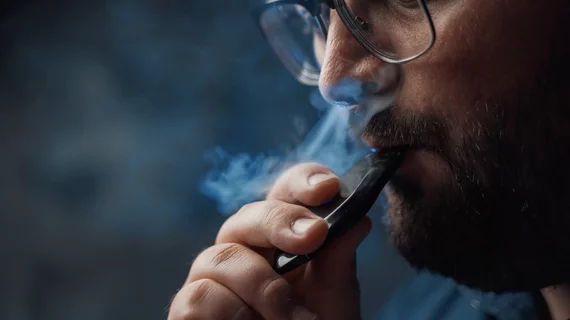Trump reverses planned ban of flavored e-cigarettes
The Trump administration is walking back on its plan to ban flavored e-cigarettes amidst an epidemic of lung illnesses and deaths related to vaping.
The change of direction for the administration came after President Trump was swayed by advisors warning of political backlash about banning the products, The New York Times reported. Action on banning flavored vaping products, which are targeted toward young consumers, appears to have been set aside, according to the NY Times.
More than 2,000 people have been confirmed across nearly all states to have the illness, known as e-cigarette, or vaping, product use associated lung injury (EVALI), and at least 39 deaths have been reported, according to the CDC. The agency has identified vitamin E acetate as the possible harmful additive in the vaping products, but the exact cause of EVALI is still unknown. Recent studies have indicated vaping could be just as harmful––or more harmful––than smoking traditional cigarettes.
Headlines about the public health crisis caused Trump to first announce a future ban on some vaping products, but e-cigarette loyalists decried that stance. Trump has decided to meet with more groups and stall making a policy decision.
See the full story below:

